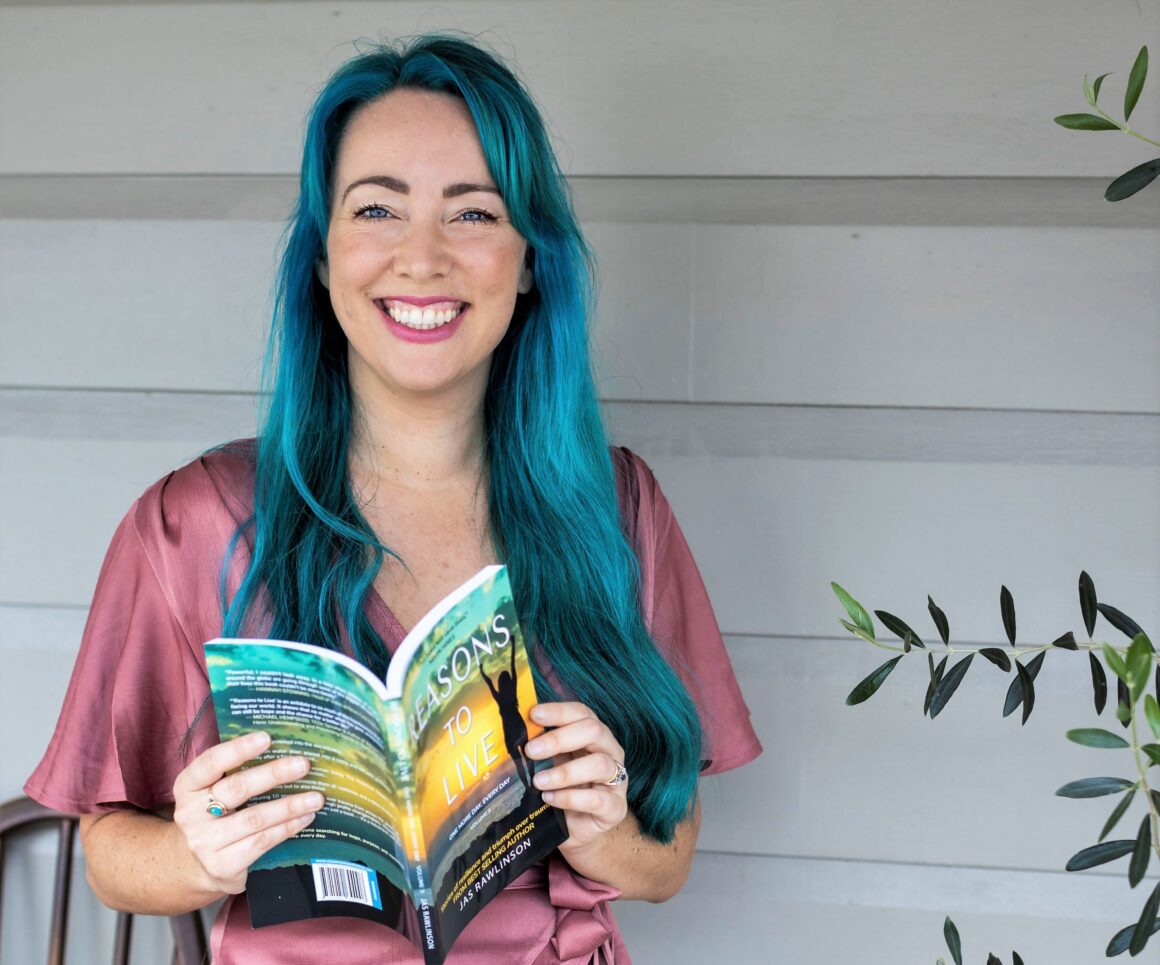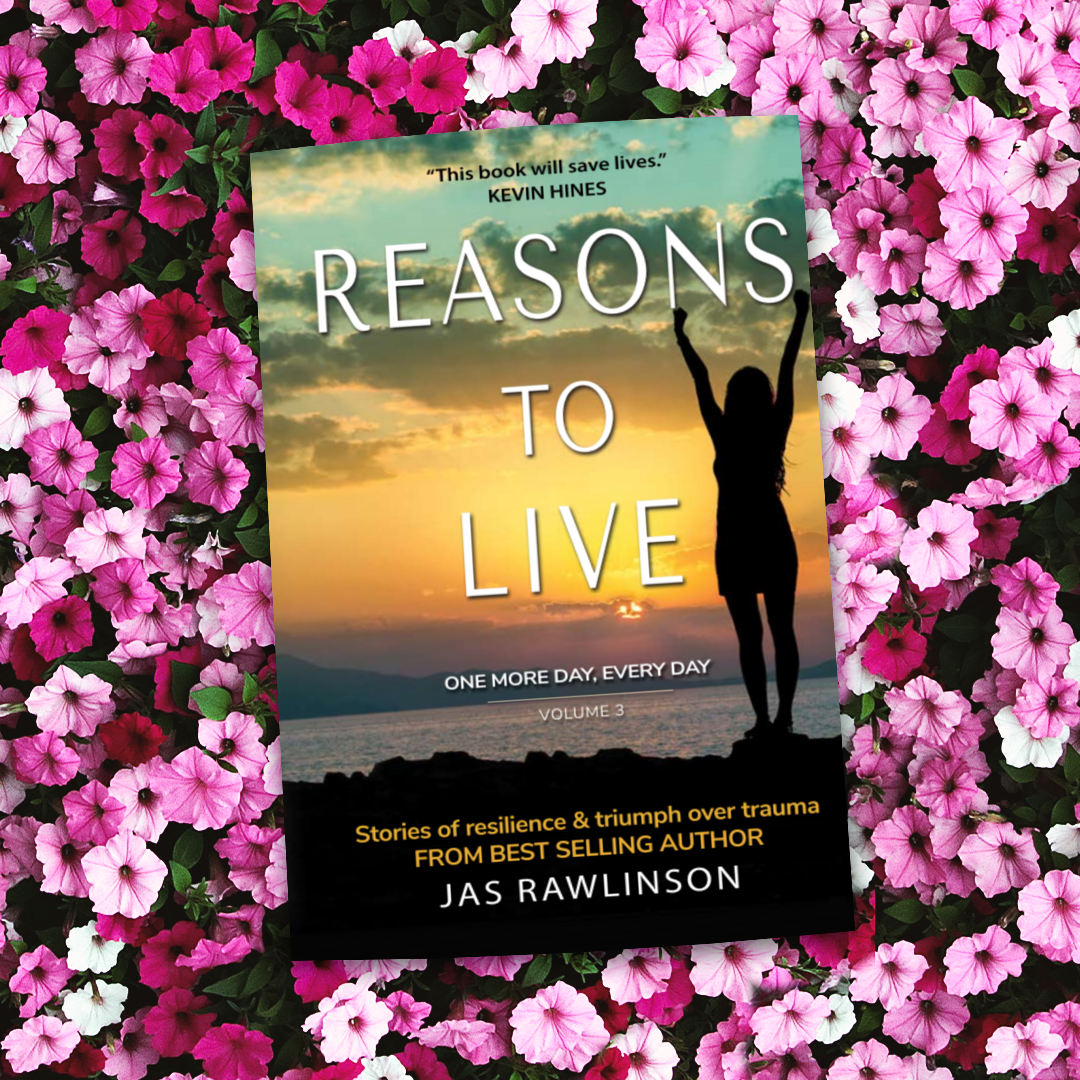If you run a bookshop, chances are that some of your customers will be dealing with trauma or living with suicidal thoughts. All of us will know someone in that situation. Maybe it’s you, our reader.
Here in the USA, we have an epidemic of darkness and despair. In 2020, there were around 1.2 million suicide attempts, and 45,979 people died by suicide. It is the 12th leading cause of death. And suicide is preventable.
Contributing to the risk of suicide are many complex circumstances, according to the Center for Disease Control, including but not limited to:
- Previous suicide attempts
- A history of depression and other mental illnesses
- Serious illness
- Criminal or legal problems
- Financial problems or job loss
- Impulsive/aggressive tendencies
- Substance abuse
- Current or prior history of adverse childhood experiences
- A sense of hopelessness
- Violence perpetration and/or victimization
Reasons to Live One More Day
I spoke with Jas Rawlinson, Aussie book coach, resilience speaker, and best-selling author, about how bookshops can work to support and empower people who have survived terrible things in their lives.

Jas herself is a survivor of domestic and sexual violence. She has a Bachelor’s degree in creative writing and psychology. She is known in Australia and beyond for transforming people’s lives through the power of storytelling; she helps them write and publish their stories, which are parts of their healing journey.
Have a look at her best-selling three-volume set on lived experiences of trauma, telling stories of hope and triumph.

In her first book, Reasons to Live: One More Day, Every Day, she gathered stories from Australians about their darkest moments and how they pulled through. These people confronted eating disorders, veteran PTSD, cancer, paraplegia, suicide attempts, sexual and domestic violence, and racism.
Volume 2 features interviews with global names and mental health experts, broaching the subjects of institutional sexual and childhood abuse, alcohol addiction, iatrogenic and mental illness, postnatal psychosis, and more.
And Volume 3 works through stories of human trafficking, leaving the sex industry, first-responder PTSD, high-functioning alcoholism, childhood and domestic abuse, suicide attempts, anxiety, sexuality, disability, and racism.
What Can Bookshops Do to Be Welcoming and Provide Resources for People in Dealing with Trauma, Despair, and Suicidal Thoughts?
I asked Jas this question, and this was her answer:
I would love to see more bookstores getting behind self-published and independent authors, particularly those with important and empowering stories of rising above trauma or adversity. As a book coach, I meet – and work with – so many incredible people with stories that have the power to create global impact, and it saddens me that too few publishers or bookstores are willing to take them on. In my experience, readers crave authenticity and relatable stories from people just like them. Not everyone wants to hear from celebrities or influencers with millions of followers. That’s one message that I’ve heard, over and over, from my own readers. They want to connect; they want to know that they’re not alone. They want to read books from experts and advocates who have found their way through the darkness, and upwards toward a brighter life. They don’t just want a 12 step check list, and a series of resources; they want relatable stories.
Is There a List of Relevant Book Recommendations That Bookshops Should Stock and Promote?
Jas says:
There are so many incredibly valuable and empowering books from lived-experience authors. Some of my personal favourites include Eggshell Skull, by Bri Lee, as well as Unbroken by Madeleine Black, and of course, Chanel Miller’s ‘Know My Name.’ I also believe it’s important for bookshops to include the voices of our first-nations and indigenous people; books like ‘Lani’s Story’ by Lani Brennan – an Australian Aboriginal woman who, despite threats to her life, unimaginable abuse, racism, and media scrutiny, successfully took her abuser to court, where he was found guilty and sentenced to almost two decades. This is a sentence that is almost unheard of, particularly for black and first-nations people. Stories like these are so important for us to hear and read.
More book recommendations
In 2018, Catherine Renton wrote on Yahoo about books that helped her when she was at her lowest. In her 20s, she wrote a list with two columns: “Reasons I want to die” and “Reasons I want to live.” Years later, she was able to share her book list in the hope that it could help others who have felt as desperately awful as she did.
Reasons to Stay Alive (Matt Haig)
A Manual for Heartache (Cathy Rentzenbrink)
Remember This When You’re Sad (Maggy Van Eijk)
What else?
We’ve also blogged here at The Bookshop Blog about titles that are helpful for understanding and coping with schizophrenia and ways that bookshops are building community.
Are there any great books you can recommend for people struggling with trauma, suicidal thoughts, and despair? You never know who you will help just by reaching out.
